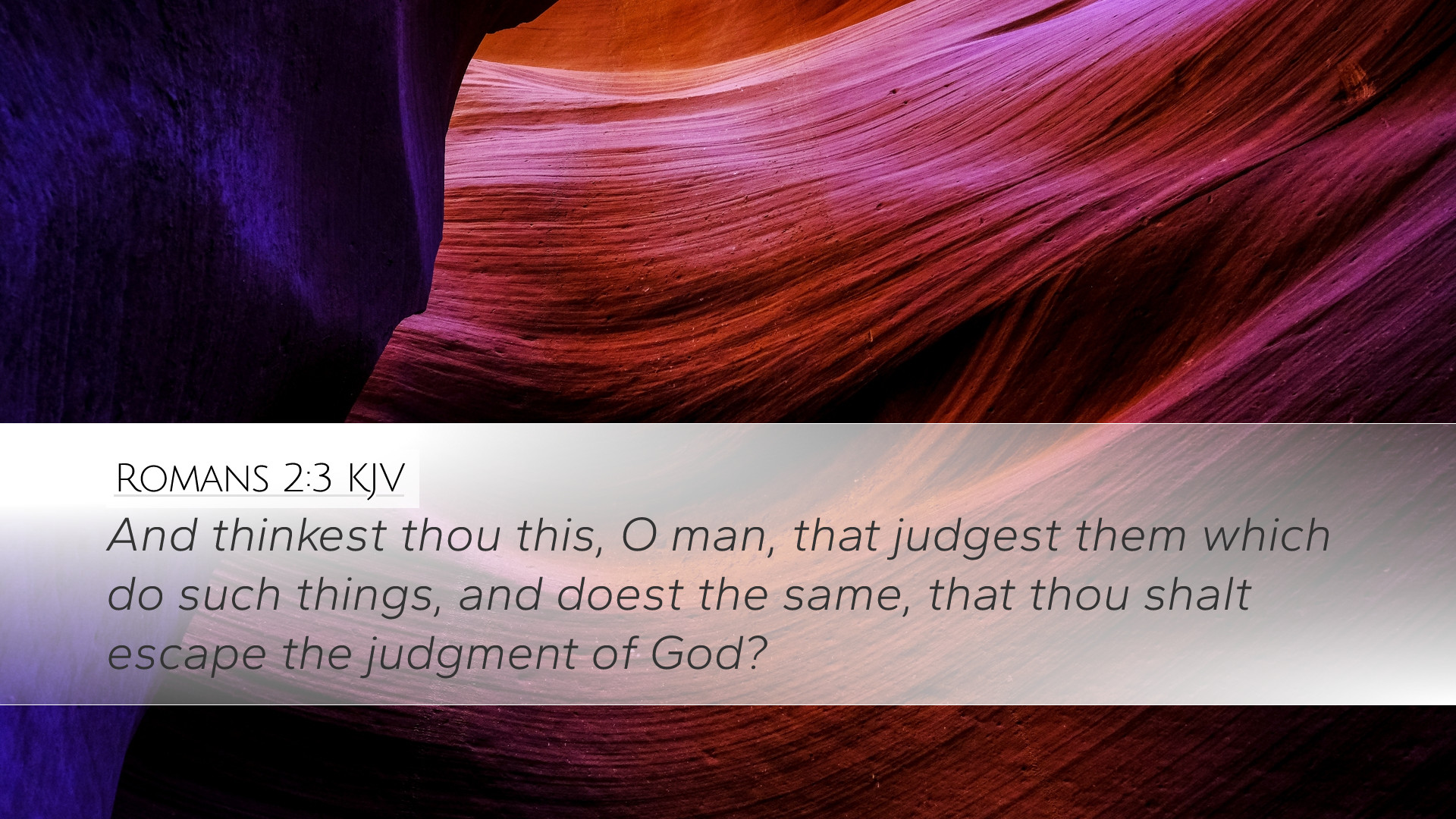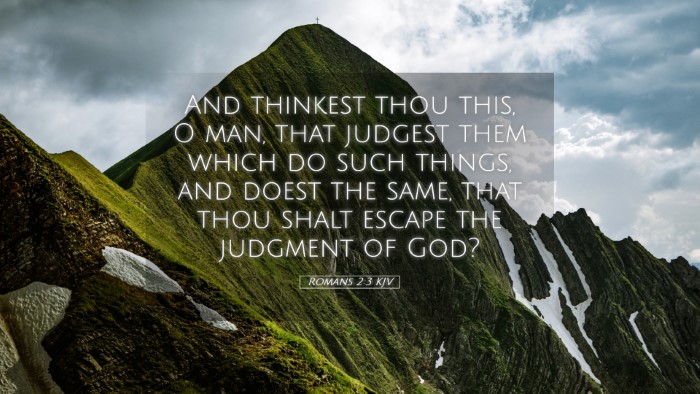Old Testament
Genesis Exodus Leviticus Numbers Deuteronomy Joshua Judges Ruth 1 Samuel 2 Samuel 1 Kings 2 Kings 1 Chronicles 2 Chronicles Ezra Nehemiah Esther Job Psalms Proverbs Ecclesiastes Song of Solomon Isaiah Jeremiah Lamentations Ezekiel Daniel Hosea Joel Amos Obadiah Jonah Micah Nahum Habakkuk Zephaniah Haggai Zechariah MalachiVerse
Romans 2:1 Romans 2:2 Romans 2:3 Romans 2:4 Romans 2:5 Romans 2:6 Romans 2:7 Romans 2:8 Romans 2:9 Romans 2:10 Romans 2:11 Romans 2:12 Romans 2:13 Romans 2:14 Romans 2:15 Romans 2:16 Romans 2:17 Romans 2:18 Romans 2:19 Romans 2:20 Romans 2:21 Romans 2:22 Romans 2:23 Romans 2:24 Romans 2:25 Romans 2:26 Romans 2:27 Romans 2:28 Romans 2:29

